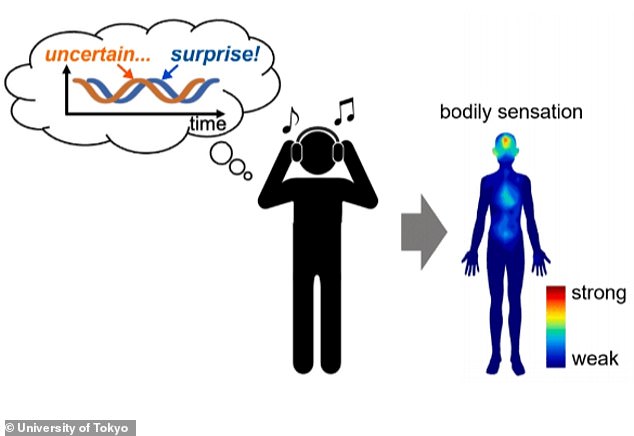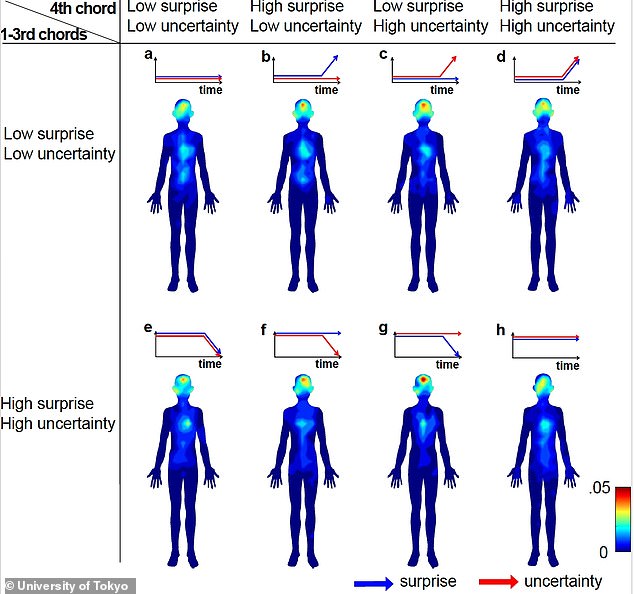- Participants were asked to map where they “felt” the music in their bodies.
- Surprising melodies were felt in the heart, while predictable music was felt in the stomach.
<!–
<!–
<!– <!–
<!–
<!–
<!–
Wet Wet Wet sang the famous song “I feel it in my fingers, I feel it in my toes.”
And, according to a new study, it turns out that some tunes can really strike a chord within us.
The researchers decided to investigate the ways in which musical notes can provoke specific bodily sensations and emotions.
They recruited 527 participants and asked them to map where they “felt” the music in their bodies while listening to eight short melodies.
Each melody had a mix of chord progressions, with varying degrees of uncertainty and surprise.

Wet Wet Wet sang the famous song “I feel it in my fingers, I feel it in my toes.” And, according to a new study, it turns out that some melodies can really strike a chord within us (file image)


The researchers decided to investigate the ways in which musical notes can provoke specific bodily sensations and emotions.
Participants were also asked how the chords made them feel emotionally.
The analysis revealed that the most surprising melodies were felt in the heart, while the predictable music was felt in the stomach.
Sensations in the heart were strongly related to aesthetic appreciation and feelings of pleasure, which in turn led to decreased feelings of discomfort and anxiety.
Meanwhile, sensations in the stomach, triggered by predictable chord progressions, elicited feelings of calm, contentment, and nostalgia.
Professor Tatsuya Daikoku, from the University of Tokyo, said: “Our research shows that some chord sequences create similar bodily sensations in certain organs, particularly the brain, heart and abdomen.


The analysis revealed that the most surprising melodies were felt in the heart, while the predictable music was felt in the stomach.
‘Music is not just something we hear with our ears, it is an experience that is felt throughout the body. I think this full-body feeling is what really defines the music.
‘This research offers insights into how musical experiences are intimately connected to our bodies.
“It holds promise for contributing to the use of music to relieve stress and improve mental health.”
Writing in the journal iScience, the team, which also included researchers from Hiroshima University, said: “Our findings underscore the importance of recognizing diverse forms of musical pleasure, each with unique effects on our minds and bodies.” .
